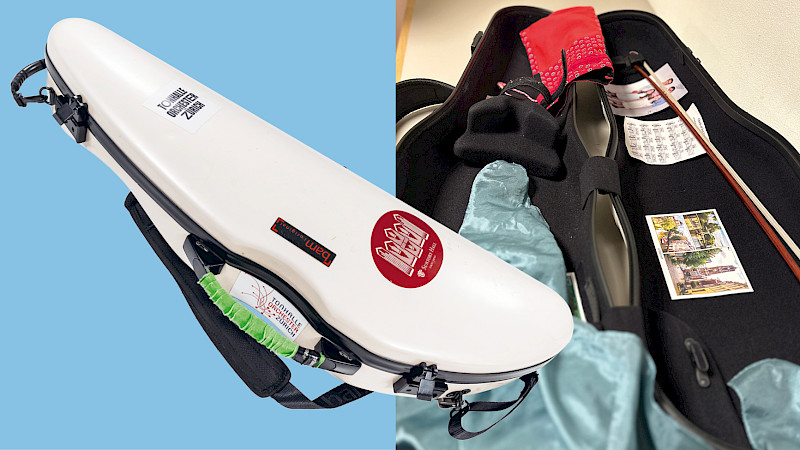
«Success has Enormous Significance in South Korea»
The award-winning South Korean string quartet Novus String Quartet will soon be giving a guest performance at the Série jeunes. Principal horn Mischa Greull, who knows the market inside out, explains why South Korea produces so many stars.
In our Série jeunes, the stage belongs to up-and-coming talent. Since its foundation in 2007 at the Korea National University of Arts, the Novus String Quartet has been one of the best chamber music ensembles in a country known for its density of international stars. Mischa Greull, principal horn of the Tonhalle-Orchester Zürich, knows the South Korean music market very well. Together with his wife Seung-Yeun Huh, born and raised in South Korea, he founded the SonusArts agency and accompanies professional musicians with individual coaching and organises concerts for soloists and ensembles in Seoul and throughout South Korea.
Mischa Greull, how is it that South Korea produces so many highly successful international musicians?
Koreans love stars. International recognition is a sign of quality and is pursued with great effort in South Korea. An agrarian state has become a highly industrialised country within a few decades, which requires a great willingness to perform in all areas. Reservations that we know here in Switzerland when it comes to high performance do not exist in South Korea.
Why do you think that is?
When it comes to music education, the consensus in Switzerland is that the joy of it is the most important thing. This does not necessarily strengthen the will to persevere in practising the instrument even in difficult moments. In Korea, children are encouraged from the time they are born and are trained to perform right from the start. Success is of enormous importance in South Korea, but this does not mean that people do not enjoy making music.
What happens to those who don't make it to the top?
Those who don't make it there have little chance to survive financially. Only those who have a track record fill the halls there. One of the things we try to do with our local network is to give local musicians a chance who are not yet international stars but who have already come a long way, and we hope to do something about this huge social gap.
Back to the high density of success stories. So there is a lot of investment in promoting gifted students?
Yes, the economic potential of classical music is recognised in South Korea. Of course, classical music is also competitive in Western Europe. In South Korean culture, however, competitiveness is valued more positively. The downside is that health risks are largely taboo among artists, even more so than here. Here, too, we try to show artists ways to make music as long and carefree as possible through health coaching with SonusArts.
Aren't willingness to perform and ambition qualities that are more suited to a solo career than a chamber music career like that of the young ensemble Novus String Quartet?
No, making music intimately and chamber-musically and ambition are not opposites. Even as an ensemble, the common goal of reaching the international top helps. As here, the best are sent abroad in time to develop their careers. Exceptional artists all over the world are an important figurehead.
Translated with DeepL.com





